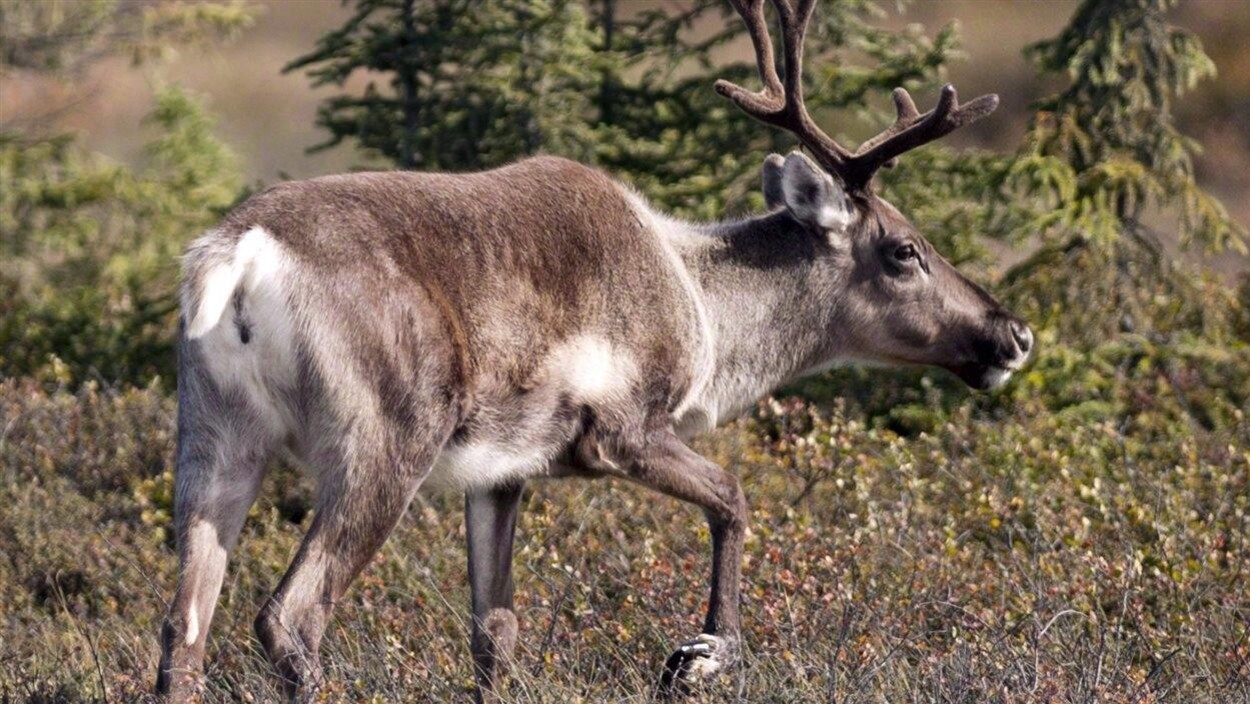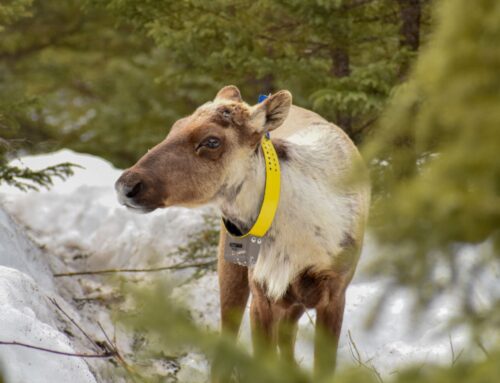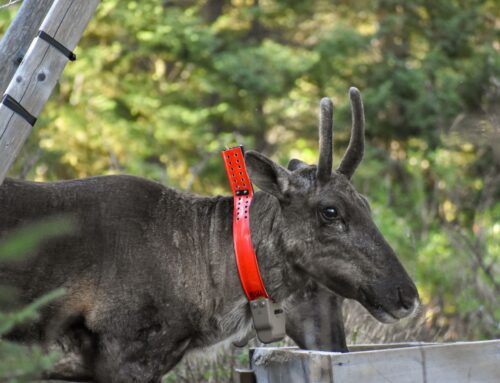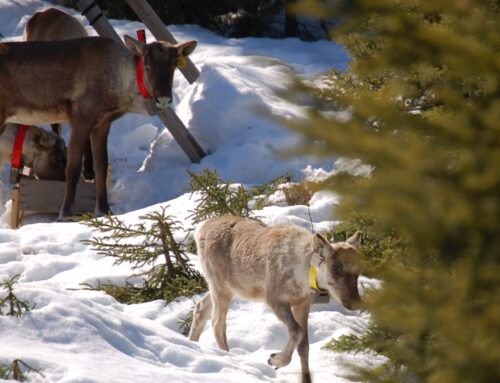The Zoo sauvage de Saint-Félicien is giving up its claim to the Val-d'Or, Québec woodland caribou herd. The organization has decided to do so because of the social acceptability issues that have been raised in recent weeks, a decision that ecologists and activists welcome.
The members of the Zoo's Board of Directors have decided to withdraw from the process of transferring caribou to their establishment. The transfer, announced by the Quebec Ministry of Forests, Wildlife and Parks, was to take place in early 2018.
The Zoo was to put the wild caribou in captivity and offer them a good quality of life and good care. Lauraine Gagnon, Director General of the Zoo sauvage de Saint-Félicien, believes that the members of the Board of Directors thought about this for several weeks before making this final decision.
"There were many issues at stake in terms of social acceptability, and I won't hide from you that the BAPE report that was rendered last Friday had a slight influence on the final decision regarding this refusal."
Lauraine Gagnon, Executive Director, Zoo sauvage de Saint-Félicien Find a new option
The Minister of Forests, Wildlife and Parks, Luc Blanchette, says he wants to continue his work to find a comprehensive strategy for managing woodland caribou habitat. He stated that the caribou herd will have to be maintained in its current natural environment before finding another option.
There have been 30 years of efforts, of actions that have been carried out, which have not borne fruit," said Mr. Blanchette when questioned in the National Assembly. But 18 woodland caribou have been maintained, and that's the good news. If it hadn't been for those efforts, it would have fallen off. However, there is a minimum threshold of about fifty individuals per herd that must be maintained and, in all likelihood, our actions have not led to the attainment of these objectives. »
"So we had no choice and it was exceptional, it was really a last resort. We decided to transfer them to the Saint-Félicien Zoo to continue the acquisition of knowledge, but also to educate the general public. What we wanted was to save them."
Luc Blanchette, Minister of Forests, Wildlife and Parks "In circumstances where the safety threshold of 50 individuals has not been reached since 1983, my intention to move the Val-d'Or caribou was guided by my desire to protect them and ensure their survival. I am convinced that this was the safest way to promote their viability. Because there is no social acceptability, we won't go any further with that. [So], we simply leave the woodland caribou of the Val-d'Or herd in their natural state, in their wild environment. And they're going to live until the herd dies out," he continued.
A decision welcomed by environmental activists
The president of the Action boréale de l'Abitibi-Témiscamingue (ABAT), Henri Jacob, believes that this turnaround shows that Minister Blanchette did not consult the population and that he must now face the consequences of his decision.
"For us, it was an aberrant decision, Mr. Jacob pleads. There is no scientist who was prepared to support such a decision. There were no studies, despite what he said, to support his decision."
He believes that the Minister should be humbled and take the trouble to consult with the public on the next steps. It would be to close roads and avoid that territory as much as possible and hope that maybe the miracle will happen," continued Mr. Jacob, "but it's clear that we have to stop cutting in that territory. We have to stop making roads that are open to all-terrain vehicles, etc. »
"For a year now, Boreal Action has been asking to split that department, because whenever there is a decision to be made, [a choice to be made] between the conservation of a wildlife species versus the exploitation of a resource, it is always the exploitation side that wins."
Henri Jacob, president of ABAT
In a joint press release with Nature Québec and the Société pour la nature et les parcs (SNAP), Boreal Action also expressed the hope that the government will listen to the recommendations of the BAPE [on the Akasaba West mining project] , notably by quickly re-examining the EACOM forest road route in order to limit the impact on caribou. The three wildlife conservation organizations also welcome the public's support for the #PasAuZoo petition.
The environmental groups Greenpeace and the David Suzuki Foundation also "breathed a sigh of relief" Tuesday afternoon, after learning of the Zoo sauvage de Saint-Félicien's retraction in the file.





